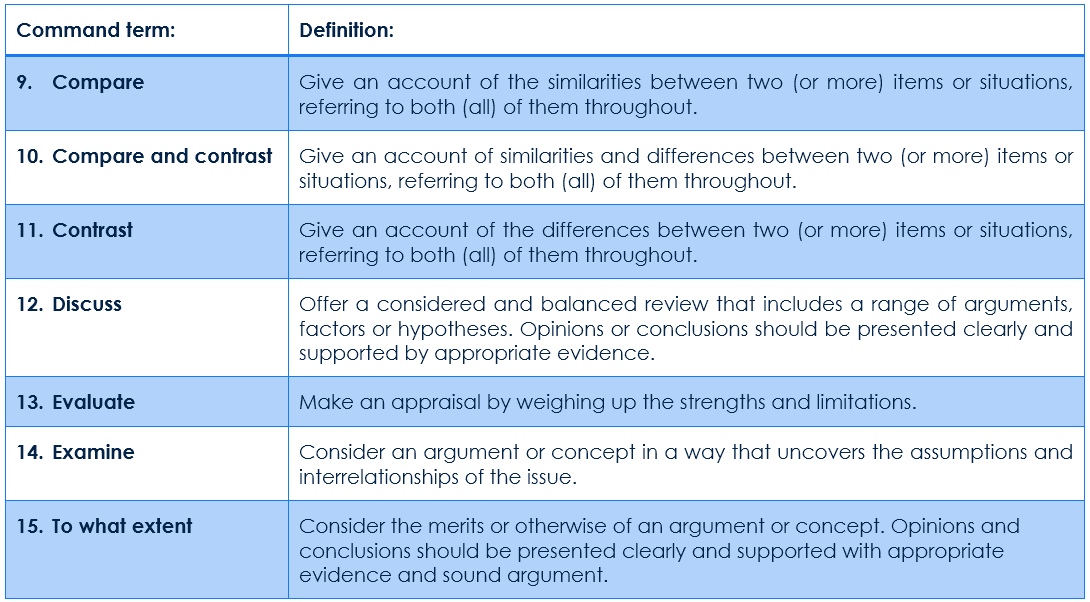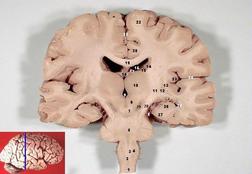| The surprising science of unconscious influences on our thought processes. The human brain is truly bizarre. The more I know about it, the less I understand it. OK, so I finally came to terms with the fact that true and unfettered freewill is dead and buried some time ago. This was hard for me. My universe is not my play thing anymore. The decisions I make, the thoughts I entertain and even the people I'm attracted to are, at least to some extent, governed by processes outside of my awareness. And, if I'm not aware of these influences shaping my thoughts and behaviours, then I'm not truly free in making my own decisions. Take for example, my lovely wife. I chose her, she chose me. A match made in heaven - perfect. End of story, right? Not quite. In the IB Psychology Human Relationships option we study the learning outcome: Examine biological, psychological and social origins of attraction. [Actually, and off topic, if you don't study this option ask your Psychology teacher why - it's fascinating.] It turns out that a lot of our attraction to another person is based on a particular set of immune system genes we both have, that we can both apparently sniff out (an olfactory sense). We are more attracted to those whom we share different major histocompatibility complex genes. Mix these genes together and we have children with stronger, healthier immune systems (conferring them survival and reproductive advantages vis-à-vis evolution). See Wedekind et al. (1995) for more details. We have no idea that this is happening. Our thoughts, decisions and behaviour are being influenced without our awareness, in a major way. Which I can accept, I see the evolutionary logic in it. But Williams and Burgh, the latest study to land on my desk just does my head in. Period. Holding a cold drink makes me perceive you as being a cold person? Williams and Bargh (2008) staged job interviews with their participants. Each participant in their cleverly crafted experiment assumed the role of the interviewer and the interviewees were confederates. Before the interviews commenced another confederate engaged the participant in a lift (elevator) and had them hold either an iced coffee or a hot coffee - the experimental condition. Interviewers given the cold drink to hold judged the hapless interviewee as being less 'warm' and were much less likely to give them the job. The mere fact of unconsciously priming an individual with physical feelings of cold or warmth, influenced perception and ultimately decision-making and behaviour. Our conscious choices may not be such an exercise in free will as we would all like to believe. Our cognitive thought processes are very easily manipulated. You can incorporate this information and this bizarre research study when you study or teach the IB Psychology CLOA learning outcome: With reference to relevant research studies, to what extent is one cognitive process reliable (for example, reconstructive memory, perception/visual illusions, decision‑making/heuristics)? The focus would be on decision‑making and the cognitive heuristics associated with much of our decision-making. And finally, I know you're probably bursting with curiosity as to why feelings of hot and cold can have this very unusual influence on our thoughts. One of two reasons have been proposed. The first being that it is a simple side effect of having a fast, automatic response to familiar stimuli that lessens cognitive demands. Associations that can be formed automatically on the basis of prior knowledge or experience (i.e. priming) usually serve us well, and would have conferred survival benefits. The other, less likely, explanation is that this is an innate response. We have been shaped by evolution to be more attracted to those who can keep us warm and less likely to freeze in our ice age caves. Whatever the reason, knowing that first impressions are all important, hand your job interviewer a cup of delicious hot coffee and shake hands using the nice warm hand that was just holding their coffee. Just watch those job offers come rolling in. | Williams & Bargh (2008)The Williams & Bargh study will most definitely mess with your head! Watch the video below. Read the original 'Science' (oh! prestigious) publication above. Best buy your date a hot chocolate, not that beer? Author: Derek Burton - Passionate about IB Psychology |
In the long answer Extended Response Questions (ERQs), those 22 mark essay questions in the Paper 1 and 2 HL and SL IB Psychology exams, examiners are looking for and marking command term application in two of the criteria they are assessing. If the command term is incorrectly addressed in your answer, you will be limited to a maximum of 6 marks for Criterion B (maximum possible 9 marks) and to a maximum of 2 marks in Criterion C (with a maximum possible 4 marks that can be awarded. That is an enormous 5 marks you are giving up for each Extended Response Question in the exams. And you will need to answer three ERQs if you are a HL IB Psychology student, and two if studying at SL. Another 2 marks across three SAQs will be forfeited in the HL and SL Paper 1 exam. Conclusion: If you do not learn your command terms and practice tailored answers to the IB examination questions according to the command term requirement you will be foregoing many marks and at least an entire grade boundary in your total IB Psychology score, possible two. Knowing your command terms could easily elevate your IB Psychology Diploma mark from a 5 to a 7 to ensure maximum success, or from a 3 to a 4 to avoid certain failure. Thus, the first rule of IB Psychology is: KNOW THY COMMAND TERMS. The tables below summarises how you should use the command terms when you are answering questions and how they apply to particular questions. I will actively look for a particular structure associated with the command term to be present in a student's answer when assessing their SAQ or ERQ answer. If their knowledge and comprehension is outstanding and the critical thinking deep and analytical, I still will not award full marks if I believe the command term has not been addressed. Harsh! There are 15 IB Psychology command terms in total. Only seven of these can be used to ask the extended response exam questions. Command terms associated with assessment objective 1: Knowledge and comprehensionCommand terms associated with assessment objective 2: Application and analysisCommand terms associated with assessment objective 3: Synthesis and evaluation Important information about IB Psychology command terms: In the learning outcomes (see syllabus content) the command terms are associated with assessment objectives 1, 2 or 3 and indicate the depth of understanding that is required of students in relation to each item of content. The grouping of command terms under assessment objectives reflects the cognitive demand of each term and is related to Bloom’s taxonomy.
This means: A lower level learning outcome (e.g. ‘Explain one study related to localization of function in the brain’ will never be asked as a 22 mark ERQ in the IB Psychology examinations. It means you can plan your ERQ answers in advance and think about how you can adapt each answer if it is asked with a different command term. Don't delay. Start practicing today.
What a 22 marks out of 22 marks ERQ answer looks like ... DISCUSS ETHICAL CONSIDERATIONS RELATED TO RESEARCH STUDIES AT THE BIOLOGICAL LEVEL OF ANALYSIS. This essay will offer a balanced review of ethical considerations related to research studies at the biological level of analysis (BLOA). The BLOA is based on mental processes such as perception, attention, language, memory, and thinking. The essay will then apply these ethical considerations to two specific research studies at the BLOA where ethical concerns have been raised – Schachter & Singer (1962) and the Case study of HM (Curtis, 1981). Ethics is the moral correctness of a specified conduct – in this case, the moral correctness of animal and human research at the CLOA. In cognitive psychology research, ethics must be considered to ensure participants (humans and animals) are not harmed and that research conducted is ethically valid. Researchers should always conduct research in an ethical manner and studies should always be critically evaluated for ethical issues. Ethical standards formulated by the American Psychology Association (APA, a scientific and professional organisation that represents psychologists) states that all research done in psychology, including that at the BLOA, must abide by six specific ethical guidelines, these include: 1. The protection of participants - Participants should be protected from physical and mental harm and distress (humiliation, stress, injury, etc.) and that participants should not be forced to reveal personal information. 2. Consent - Participants should be informed of the true aims and nature of research before giving consent. However, sometimes it is not possible to give full information about research. This is especially true if participant bias could be expected; i.e., knowing the true aims of a study may affect participants’ behaviour and thus the results of a study. For example, knowing beforehand that a study is researching how an emotion (e.g., anger) is related to physiology (e.g., adrenaline – a neurotransmitter and hormone) could lead to participants responding more cautiously and thoughtfully to the experimental conditions than they otherwise would (Schachter & Singer, 1962). It is also considered acceptable not to give full informed consent if no harm is expected (e.g., using MRI scans to examine changes in the structure of the hippocampus of London taxi drivers as a result of intense learning – Maguire et al., 2000). A guardian or family member should also give consent to the study if the participants are children (under the age of 18) or unable to give consent (e.g., a participant severely affected by Alzheimer’s disease). 3. Right to withdraw - Participants should be informed of their right to withdraw their participation and data at any time in the study (even at the end) without penalty. This is important because individual differences means that researchers can never be certain if a particular participant will be experiencing stress and discomfort or not. 4. Confidentiality - Data collected in a study should remain confidential and anonymous because it is important to protect participants from possible consequences that may result from their data (e.g., some health insurance companies insist that any cognitive degenerative disease diagnosis such as AD be made available to them). Identifying information and individual responses will not be shared with anyone who is not involved in the study. 5. Deception should be avoided, however slight deception is considered acceptable if:
6. Debriefing - Any deception must be revealed and justified and participants should leave the study without undue stress. Findings of the research should be made available to participants as soon as possible. Ethical guidelines for animal research (APA) have also been formulated: Animal research should try to avoid harm to animals. Any harm caused to animal should be carefully weighed against the research’s potential to provide significant benefit to the health or welfare of humans or other animals, or if it is unavoidable (e.g., electrodes that monitor individual neuronal hippocampal activity in memory tasks). If the procedure would cause pain to humans, it should be assumed that it will cause pain to animals. Animal welfare should be monitored and animals should be euthanised as soon as possible if research causes long term/serious harm and/or affects their ability to live normally and pain-free. Research studies such as Curtis (1981) and Schachter and Singer (1962) raise significant ethical considerations. The case study of HM (Curtis, 1981) HM was man who lost the ability to remember information after a brain operation. The operation was clearly a disaster for HM, although he probably never understood that because he could never learn what happened to him or if he did he would forget it within a couple of minutes. This was a tragedy for HM but an opportunity for any psychologists who became aware of the case. They queued up to study HM’s memory, assessing it with all kinds of tests and checking out a wide range of hypotheses concerning the theoretical distinctions between long-term and short-term memory, and between explicit and implicit memory. They used all sorts of stimuli, including electric shocks and white noise (see review: Corkin, 1984). He has probably had more words written about him than any other case in neurological or psychological history (Ogden & Corkin, 1991). There were a set of ethical issues with most of the studies performed on HM, which include: 1. Participant Protection – HM was protected from harm during most studies, but obviously not when electric shocks were used. He may have experienced mental distress from dramatic changes in environments, carers and different researchers coming and going. 2. Consent – HM could not be fully informed or give consent to these studies due to his general cognitive functioning. He would not understand the nature and aims of the study and therefore, it was not possible to gain fully informed consent. 3. Withdrawal – HM would not have been able to express any desires to withdraw from the studies as it was likely, his poor memory would mean that he was not aware that he was participating in an experiment after a short period of time had passed. 4. Confidentiality – His identity was kept anonymous as best as possible as 'HM' is just his initials. His real name was in the end revealed, and his case was exposed to the world of psychology and HM was readily identifiable in video footage. 5. Deception and debriefing – HM was not debriefed in most studies study. However, as he did not know that he was being studied, he would not desire a debriefing. In conclusion, most of the memory studies in which HM participated would not meet the ethical requirements necessary for research into the BLOA and would not be approved by the ethics boards of universities today. The ethical procedures surrounding case study patients today are much more prescribed and regulated. Schachter and Singer (1962) Schachter and Singer aimed to test whether cognition (the interpretation of a state of arousal) was needed to interpret and transform ambiguous physiological states into specific emotions. To do this they recruited volunteers to receive a vitamin injection and informed them that they would be participating in vision experiments. None of the participants received a vitamin injection. Three of the four experimental groups received an adrenalin injection (a potent hormone associated with fight or flight response), and the control group a saline injection. In addition to this deception, one of the experimental groups was provided with misinformation about the side effects of the ‘vitamin’ injection (the actual side effects of adrenaline). The next experimental condition saw half of the participants being manipulated into an emotional state of anger (the half into a state of ‘euphoria’ or happiness). There were a set of ethical issues in this study, which include: Deception – Participants were deceived about the aims and nature of the study. Participants were told the study aimed to test the effects of the supposed vitamin injection on vision. But it was actually testing the two factor theory of emotion - emotion arises from a combination of cognition and arousal - using adrenaline. All participants were deceived about the injection they were receiving, and were actually administered adrenaline or a placebo (saline solution). Furthermore, some participants were given false side effects of the adrenaline injection that they were given – headache, numbness, itchiness in the feet However, deception was used because participant bias would result from participants knowing the true nature of the study and the research has potential significant contribution to understanding the causes of emotion. Consent – Participants were not informed of the true nature and aims of the study before giving consent. They did not know that the study aimed to investigate the two factor theory of emotion. They did not know that they would be receiving adrenaline or placebo injections. Some participants did not know the true effects of the adrenaline injection they were given, they were either given false effects or no effects. Again, however, being fully informed of the true nature and aims of the study probably would have resulted in participant bias. Participant protection – Researchers did not protect participants. Participants may have had a harmful reaction to the adrenaline and researchers did not ensure that participants would not experience harm from the injection. Debriefing – Participants were adequately debriefed and the deception was revealed and justified. In conclusion, this study does not meet the ethical requirements necessary for research into the BLOA and would not be approved by the ethics boards of universities today. The of the use of a potent hormone adrenaline being administered while simultaneously attempting to induce anger in the participants raises ethical concerns about the protection of participants, as does the significant levels of deception involved. These factors are not likely to be outweighed by the significance of research argument. General conclusion: Most modern day research into the BLOA is seriously considered in terms of its ethics by both the researchers themselves and by governing oversight by the governors of ethics boards. If deception is to be involved it is required to be slight and protection of participants paramount. We have seen that some previous research into the BLOA has not always met the requirements of the ethical guidelines now required in this field. Author: Derek Burton - Passionate about IB Psychology
Author: Derek Burton - Passionate about IB Psychology
|
IB DipLOMA PsychologY:The IB Psychology Blog. A place to share research and teaching and learning ideas for those studying and teaching Psychology for the IB Diploma Programme. Archives
April 2016
Categories
All
|














 RSS Feed
RSS Feed